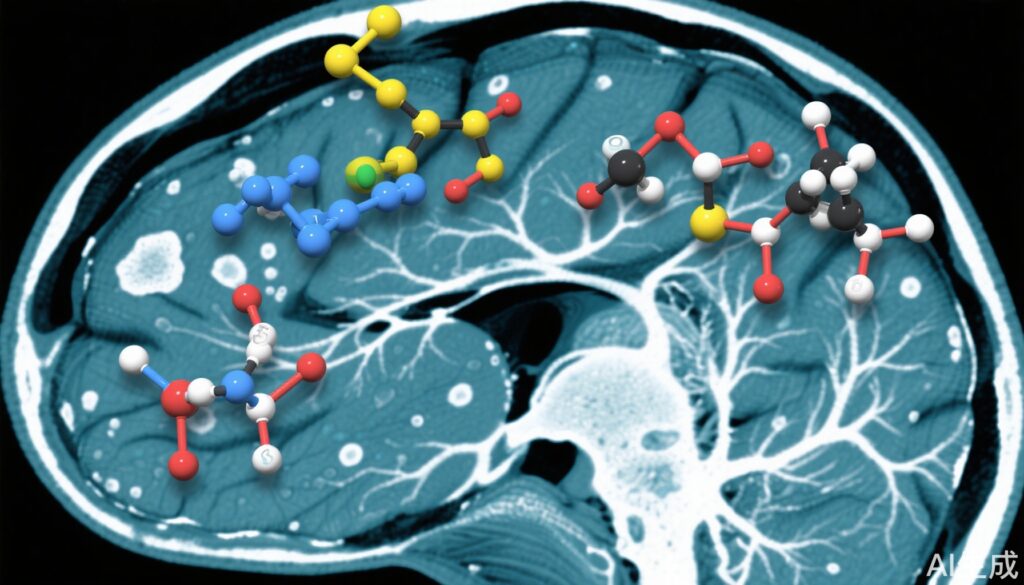Highlights
- Tolebrutinib reduced the risk of sustained disability progression in nonrelapsing secondary progressive multiple sclerosis (SPMS) compared to placebo.
- In relapsing multiple sclerosis (RMS), tolebrutinib was not superior to teriflunomide in reducing annualized relapse rates.
- Safety signals for tolebrutinib include higher rates of serious adverse events and liver enzyme elevations, as well as increased minor bleeding.
Clinical Background and Disease Burden
Multiple sclerosis is a chronic, immune-mediated disorder of the central nervous system, characterized by demyelination and neurodegeneration. The clinical course of MS is heterogeneous, encompassing relapsing-remitting forms (RMS) and progressive forms, such as secondary progressive MS (SPMS). Disability accrual in SPMS, especially when relapses are absent (nonrelapsing SPMS), remains a critical unmet need as current disease-modifying therapies (DMTs) have limited efficacy in slowing progression independent of relapses. Persistent neuroinflammation involving microglia and B cells is thought to contribute to this progressive decline. There are currently no approved therapies specifically for nonrelapsing SPMS, underlining the need for novel interventions.
Research Methodology
Two major phase 3 studies published in the New England Journal of Medicine in 2025 address the role of tolebrutinib, an oral, brain-penetrant Bruton’s tyrosine kinase (BTK) inhibitor, in MS.
1. **HERCULES Study (Nonrelapsing SPMS):**
– Design: Randomized, double-blind, placebo-controlled, event-driven phase 3 trial.
– Population: 1131 participants with nonrelapsing SPMS (754 to tolebrutinib, 377 to placebo).
– Intervention: Tolebrutinib 60 mg once daily versus placebo.
– Primary Endpoint: Confirmed disability progression sustained for at least 6 months.
2. **GEMINI 1 & 2 Studies (Relapsing MS):**
– Design: Two randomized, double-blind, double-dummy, event-driven phase 3 trials.
– Population: 974 participants in GEMINI 1 and 899 in GEMINI 2 with relapsing MS.
– Intervention: Tolebrutinib 60 mg once daily versus teriflunomide 14 mg once daily, each with matching placebo.
– Primary Endpoint: Annualized relapse rate. Key secondary endpoint: Confirmed worsening of disability sustained for at least 6 months.
Key Findings
HERCULES (Nonrelapsing SPMS):
– Median follow-up: 133 weeks.
– Confirmed disability progression sustained for at least 6 months occurred in 22.6% of tolebrutinib-treated patients versus 30.7% in placebo (hazard ratio, 0.69; 95% CI, 0.55–0.88; P=0.003), indicating a significant reduction in progression risk.
– Serious adverse events were higher with tolebrutinib (15.0%) vs. placebo (10.4%).
– Elevated alanine aminotransferase (ALT) >3x upper limit of normal occurred in 4.0% of tolebrutinib patients vs. 1.6% for placebo.
GEMINI 1 & 2 (Relapsing MS):
– Median follow-up: 139 weeks.
– Annualized relapse rates: GEMINI 1 – 0.13 (tolebrutinib) vs. 0.12 (teriflunomide) (rate ratio, 1.06; 95% CI, 0.81–1.39; P=0.67). GEMINI 2 – 0.11 for both arms (rate ratio, 1.00; 95% CI, 0.75–1.32; P=0.98).
– Confirmed disability worsening sustained for at least 6 months: pooled 8.3% (tolebrutinib) vs. 11.3% (teriflunomide) (hazard ratio, 0.71; 95% CI, 0.53–0.95). However, no formal hypothesis testing was performed for this endpoint.
– Adverse event rates were similar between arms, but minor bleeding events (petechiae and heavy menses) were more common in the tolebrutinib group (petechiae: 4.5% vs. 0.3%; heavy menses: 2.6% vs. 1.0%).
Mechanistic Insights and Biological Plausibility
Tolebrutinib, as a BTK inhibitor, targets B cells and myeloid cells (including microglia) both peripherally and within the central nervous system. By modulating these immune compartments, it is hypothesized to dampen chronic neuroinflammation—a contributing factor in progressive MS. The observed reduction in sustained disability progression in nonrelapsing SPMS supports the potential of BTK inhibition to impact neurodegenerative pathways not addressed by existing DMTs.
Expert Commentary
The HERCULES findings are clinically meaningful, given the historical lack of effective options for nonrelapsing SPMS. In contrast, the GEMINI results suggest that tolebrutinib does not outperform an established oral DMT, teriflunomide, in controlling relapses in RMS. This highlights the possibility that BTK inhibition may be more relevant for neurodegenerative progression than for relapse suppression. The increased incidence of liver enzyme elevations and minor bleeding events warrants close safety monitoring.
Controversies and Limitations
– The benefit of tolebrutinib on confirmed disability progression in RMS was not formally tested in the GEMINI trials due to hierarchical testing constraints.
– The observed reduction in disability progression in SPMS, while statistically significant, must be weighed against increased rates of adverse events, including hepatotoxicity.
– The lack of superiority in relapse reduction compared to teriflunomide may limit enthusiasm for tolebrutinib in RMS, at least at the tested dose and population.
– Generalizability to diverse MS populations and over longer-term use remains to be established.
Conclusion
Tolebrutinib demonstrates a clinically significant reduction in sustained disability progression in nonrelapsing SPMS, addressing an urgent therapeutic gap. However, its efficacy in relapsing MS does not surpass that of teriflunomide for relapse prevention. The safety profile necessitates vigilance, particularly regarding hepatotoxicity and bleeding. BTK inhibition remains a promising avenue, especially for progressive MS phenotypes, but further research is needed to clarify its optimal clinical role.
References
Fox RJ, Bar-Or A, Traboulsee A, Oreja-Guevara C, Giovannoni G, Vermersch P, Syed S, Li Y, Vargas WS, Turner TJ, Wallstroem E, Reich DS; HERCULES Trial Group. Tolebrutinib in Nonrelapsing Secondary Progressive Multiple Sclerosis. N Engl J Med. 2025 May 15;392(19):1883-1892. doi: 10.1056/NEJMoa2415988. Epub 2025 Apr 8. PMID: 40202696.
Oh J, Arnold DL, Cree BAC, Ionete C, Kim HJ, Sormani MP, Syed S, Chen Y, Maxwell CR, Benoit P, Turner TJ, Wallstroem E, Wiendl H; Tolebrutinib Phase 3 GEMINI 1 and 2 Trial Group. Tolebrutinib versus Teriflunomide in Relapsing Multiple Sclerosis. N Engl J Med. 2025 May 15;392(19):1893-1904. doi: 10.1056/NEJMoa2415985. Epub 2025 Apr 8. PMID: 40202623.



